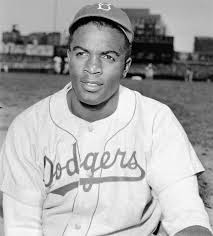One thing I would find funny if it didn't so enrage me is priests being sentenced to "a life of prayer and penance" after sexually abusing children. Especially if said priest is old and has so exploited multiple victims.
I got to thinking about that when I heard the story of one Nicholas Clark.
Who is he? you ask.
He's someone important enough for USA Cycling to know about. More precisely, the American cycling body has just suspended him from all of its activities for one year and from holding a coaching license for three years.
What did he do to earn such a punishment?
Oh, he more than earned it. He'd built an enthusisatic following as a coach and owner of ProBike FC, a bike shop in Fairfax County, Virginia. From that locale, he led training rides that included dozens of people, many of them in his thrall over his having raced for teams like AG2R-Casino on such prestigious races as the Tour of Flanders, Paris-Nice and Liege-Bastogne-Liege.
 |
| Nick Clark addresses a training ride at his shop. |
The problem, as you might have guessed by now, is that his account of his racing history contained just about as much truth as any claim I could make of a blood relationship to the King of Sardinia and the Duchess of Savoie.
Or that I gave Tim Berners-Lee that great idea he had. But, really, I let him take credit for it because I didn't want the spotlight.
The other claims Clark made weren't so farfetched. But his profile picture on his now-deleted Strava account shows him standing with Johan Museeuw, who gives him a thumbs-up and another prominent pro rider, Paolo Bettini, on a cloudy day in Belgium.
 |
| The Casino team. Where's Nick? |
Now, I am not going to say whether that photo was "doctored." As we say in the old country, I'll leave that up to you, dear reader. But it's come to light that some other things he used to burnish his C.V. were as fabricated as anything as anyone could assemble from three letters: B.ec, LLB, MBA, CPA and CEO. Oh, and he fudged other credentials and relationships to fit one scheme or another.
Of course, USA Cycling can't punish him for faking academic, military or corporate credentials. But, it seems, there was some, shall we say, misconduct when he coached a women's cycling team.
The thing that unraveled the world he fabricated, however, was recorded on that now-deleted Strava account. One day three years ago, he ascended a steep climb near his home at a faster pace--and lower energy output--than even an elite pro rider in the prime of his or her career could. And Nick was a decade and a half past such a peak, if indeed he ever had one.
 |
| A screenshot of Clark's now-deleted Strava account. |
Another Strava entry a few months later, at age 45, showed that he rose up a hors de categorie climb in Arizona faster and with less effort than Sepp Kuss, a young rider who shepherded Primoz Roglic to second place in the 2020 Tour de France and later won a stage himself.
A few people looked into Clark's Strava account and found claims of his seeming to have defied the limits of physiology, the laws of physics and pure-and-simple reason.
Further digging revealed, among many other false claims, that he'd left his native Australia for Norway to compete in the 1993 Junior Road World Championships.
The winner of that tournament's rain-soaked elite men's road race? Lance Armstrong. The senior road race, that is. That year's Junior Worlds, contrary to Clark's fable, were actually held in Perth, Australia: his own hometown. Still, there's no record of his having participated.
A fraud and a doper. That's just about as rich as Donald Trump, another fraud, endorsing Dr. Oz, a quack, for Senate. Maybe they'll be sentenced to a life of prayer and penance--or a one-year ban from something.
These days, Nick Clark is working as a firearms instructor, claiming military experience and a background as a "former officer with the Department of Corrections having served in a number of units, from SuperMax wings, to emergency response and hostage response units and drug squad as an active drug dog handler."
If that turns out to be as true as his other stories maybe he'll, I dunno, have his license to shoot a cap gun suspended for six months or something. Of course, that's less harsh than any punishment he'd get from the UCI for any cycling-related infraction.






























